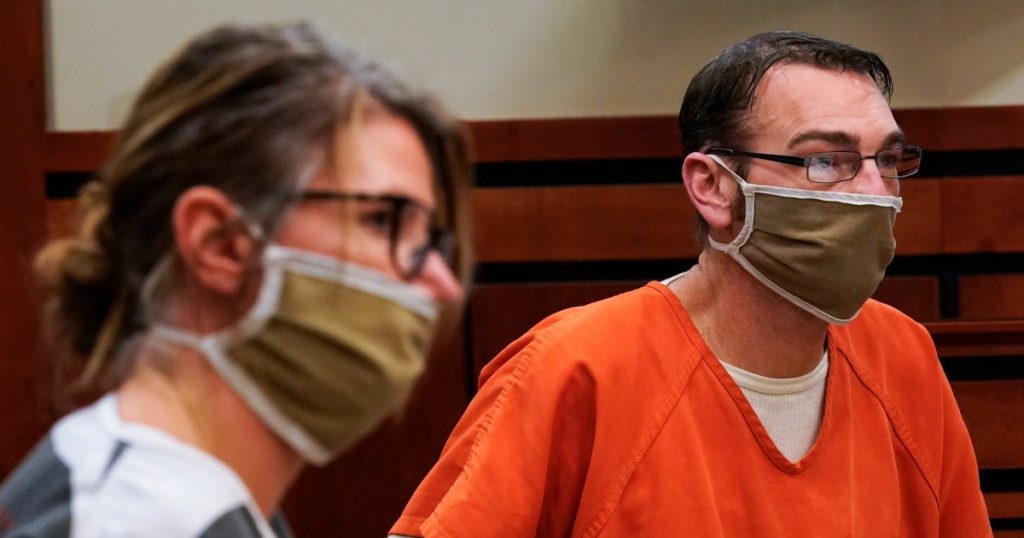James Crumbley, 47, could potentially face a harsher sentence after allegedly making threats in jail, according to legal experts. He restricted his communication during his trial to only his lawyer and clergy. The sentencing memo referenced allegations that he made threats against the prosecutor and displayed a lack of remorse. Crumbley was said to have made expletive-ridden threats on multiple recorded jail calls, including directly addressing the prosecutor by name and threatening repercussions. His lawyer argued that these calls were a means for Crumbley to vent his frustrations regarding the lack of investigation that was done by the prosecution prior to charging him.
In a pre-sentence report, Crumbley denied any involvement in the tragic events and expressed a lack of remorse. He asserted his innocence and acknowledged his inability to change what happened in the past. Crumbley’s lawyer, Mariell Lehman, defended his actions by stating that the threatening statements were made in only a small portion of the calls and that he expressed anger towards the situation, rather than physically harming the prosecutor. The prosecution, however, highlighted the severity of the threats made and the lack of accountability displayed by Crumbley leading up to and during the trial.
Mark Chutkow, a former U.S. attorney, noted the significance of the threats, obstruction, and lack of remorse in determining an appropriate sentence for James Crumbley. He emphasized that each parent will be evaluated individually during the sentencing, even though their circumstances are similar. The defense has not indicated whether they plan to appeal Crumbley’s verdict. Jennifer Crumbley, his wife, testified during the trial that she placed the responsibility of securing the firearm on her husband, emphasizing that she was not aware of her son’s capacity for violence. Prosecutors alleged that she prioritized her personal interests over her son’s mental health.
In her sentencing memo, Jennifer Crumbley expressed regret for her actions and stated that with the knowledge she has now, she would have approached the situation differently. The trials for both parents focused on the events leading up to and on the day of the tragic school shooting, where four students lost their lives. Ethan, the couple’s son, was found to have access to a firearm for which his father bought him a day after Thanksgiving. The parents were summoned to the school after a concerning note was found on Ethan’s desk, but school officials testified that they declined to take him home.
The families of the victims have demanded further accountability following the trials, advocating for changes to governmental immunity laws that protect schools from being sued. They are also pushing for mandatory independent reviews after any mass shooting. The victims’ families seek justice and hope to prevent similar tragedies from happening in the future. Despite the challenges of holding officials accountable in criminal court for the events leading up to the shooting, they are determined to fight for awareness and change to prevent such incidents from occurring again.


